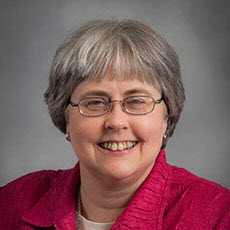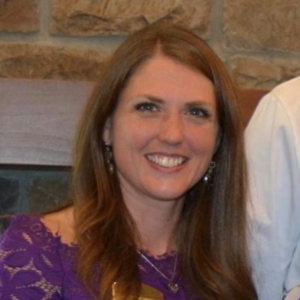Holiday traditions: One-on-one with…Denise Scruggs
The holidays are a hustling, bustling season that are steeped in tradition. That presents an opportunity for senior living providers to engage people with dementia. There are activities to delight in, such as singing carols, faith-based celebrations and an emphasis on spending time with loved ones. The season engages the mind, heart and senses. I Advance Senior Care magazine’s Nicole Stempak spoke with Denise Scruggs, ADC/EDU/MC, CADDCT, CDP, director of the Beard Center on Aging at Lynchburg College about how to connect with memory care residents during the most wonderful time of the year.

Denise Scruggs
Why are the holidays a time to connect?
It’s about spending time with family and friends. It’s about showing we care and knowing that others care about us, too. For many, the holidays were the one time of the year everyone came together. Offering opportunities for children to visit, inviting family to join residents in holiday activities and reminiscing about holidays gone by encourages connections with others while bringing comfort and joy to both residents and staff. Providing familiar and meaningful activities connects one to the season, too.
What does the holiday season offer people with dementia?
We can connect to past memories and engage in the moment through our senses. This is especially true for persons with dementia. The sights and sounds of the holiday season, along with its tastes and smells, trigger memories of traditions and the love of family. Most importantly, they provide wonderful opportunities for interaction with staff and family.
How did you celebrate the holidays when you worked in memory care?
Calming yule log videos of firewood burning in a fireplace generate a sense of warmth without the heat. Holiday light videos created a sense of holiday wonder for those who could not see them firsthand. For those who could tolerate an outing, we offered an early evening trip followed by hot chocolate and cider. For a little humor, we used holiday-themed singing and dancing stuffed animals. We watched traditional TV specials our residents grew up with like A Christmas Story, A Christmas Carol and A Charlie Brown Christmas. Residents helped decorate trees, often alongside family members and staff. We also brought in children to help make decorations, deliver handmade cards, present holiday plays and sing. We went through candle-lighting ceremonies using battery-operated lights for residents celebrating Kwanzaa and Hanukkah. We even baked cookies together and prepared goodie bags for visitors who came through during the holidays. All activities involved families who needed to be involved as much as our residents needed them to be there.
Is there a connection to holiday music?
Holiday music, like other forms of music, is powerful and personal. It has been part of many people’s lives. It stirs memories, encourages movement and helps residents and staff get into the holiday spirit. For persons with strong faith, hymns offer comfort and support. Music also provides cognitive stimulation and opportunities for success when residents are able to accurately recall and sing their favorite melodies. For these reasons, music was a part of many of our favorite wintertime one-on-one and group activities.
How do you balance inclusivity with religious or cultural celebrations?
Christmas, Hanukkah and Kwanzaa have been a part of residents’ lives for decades. Religious and cultural backgrounds, financial situations, family dynamics and beliefs have shaped their memories and traditions. It is up to staff to determine what is appropriate for their community and individuals based on the makeup of residents and each resident’s past experiences.
Why should residents with dementia be involved?
Residents have looked forward to, prepared for and enjoyed many holiday celebrations since childhood. Holiday baking, preparing Hanukkah gifts and dressing up in holiday finery all contribute to making the holidays special. Most have not had anyone come in and do these things for them. If somebody does it all for them, our residents lose out on that sense of accomplishment. They can also lose some of their most cherished memories. While we want our communities to be picture-perfect during the holidays, we need to remember that our community is their home and that imperfection and resident involvement is really what the holidays are all about.
What else should caregivers remember about the holidays?
While the holidays bring back good memories for most, it doesn’t for everyone. Some have been estranged from family and had other things going on that generate bad memories. Likewise, we need to remember that some prefer individual celebrations rather than group ones. Most importantly, like everything else, there is no one-size-fits-all holiday.

Nicole was Senior Editor at I Advance Senior Care and Long Term Living Magazine 2015-2017. She has a Journalism degree from Kent State University and is finalizing a master’s degree in Information Architecture and Management. She has extensive studies in the digital user experience and in branding online media. She has worked as an editor and writer for various B2B publications, including Business Finance.
Related Articles
Topics: Activities , Alzheimer's/Dementia , Articles











